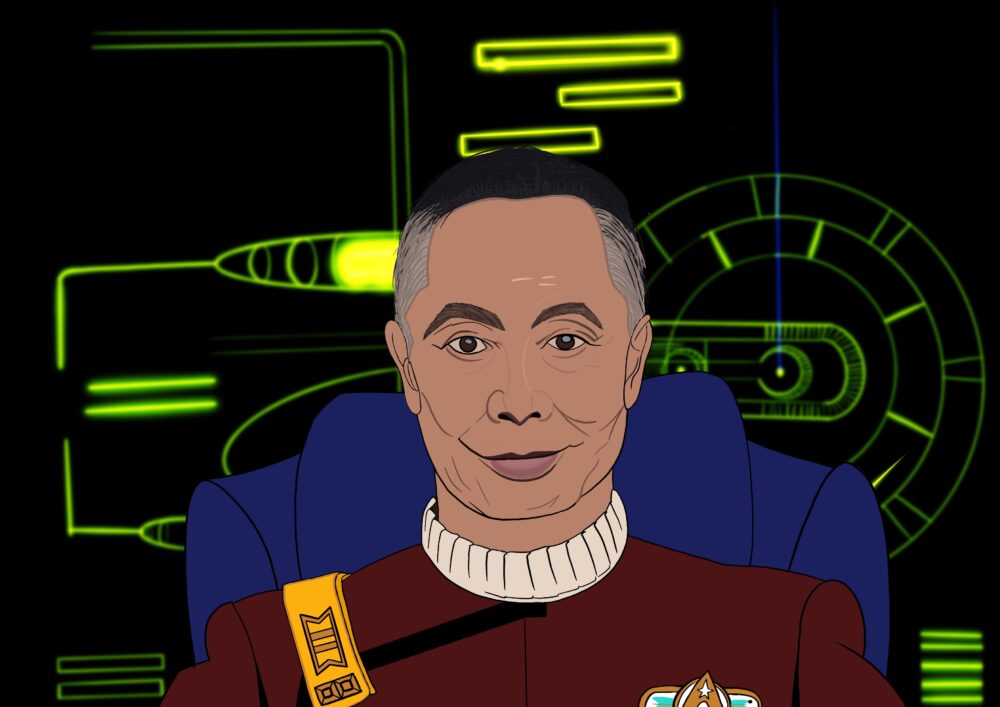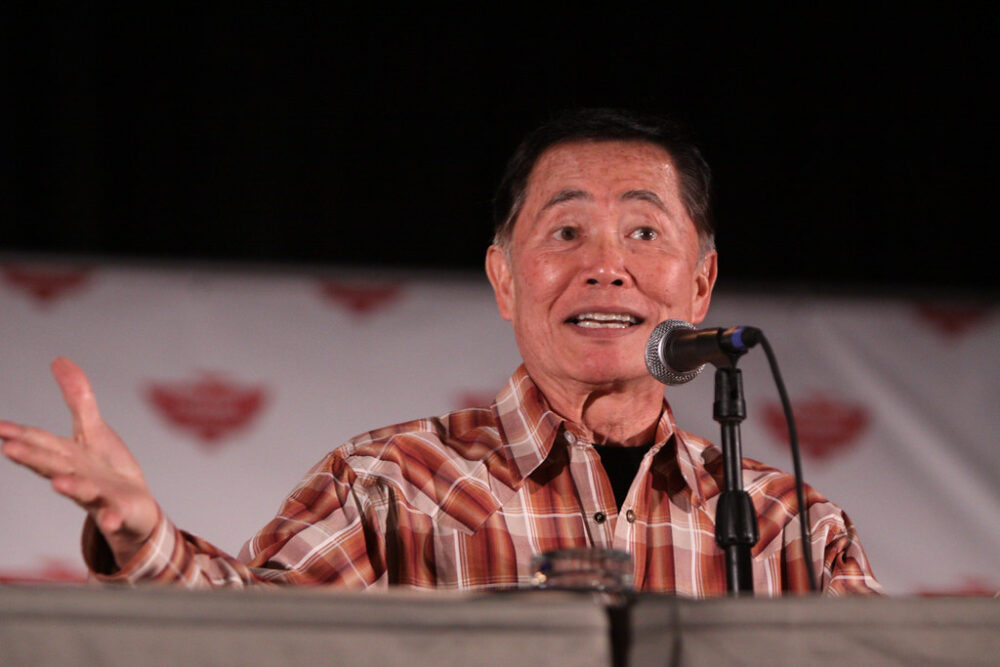
By Cate Meister
Author, activist and actor George Takei spoke to students across Huntington Beach Union High School District (HBUHSD) about his graphic memoir “They Called Us Enemy” on May 5 as a part of this year’s HBReads program. Takei’s novel, which was chosen as the 2021 program’s featured book, focuses on his experience of being imprisoned at a young age as a part of the internment of Japanese Americans during World War II.
Under the coordination of district librarian Elizabeth Taireh, the event was held virtually via Zoom webinar. Students were able to submit questions both before and during the event, and moderator Jen Cullen Williams facilitated the dialogue with questions surrounding Takei’s career, authorship, activism and personal life.
Takei, who is best known for having acted in “Star Trek”, discussed the process of writing “They Called Us Enemy,” which was drawn in part from his biography “To the Stars.” Takei wanted to adapt his biography into a format that would appeal to a younger audience, prompting him to collaborate with illustrator Harmony Becker, a decision that stemmed in part from his childhood love of comics.
“I decided, I wanted another way to reach…young people, preteens and teens, because they’re the ones that are going to be the voters of tomorrow,” Takei said.
Takei’s internment as a child would lead to a lifelong career as an activist. He drew inspiration from his father, who served as a block leader in one of the internment camps they were held in, and his mother. Takei noted that his father helped to instill ideals of democracy and political participation in him at a young age.
“My mother was a strong woman, and my father was a diplomatic man,” he said.
Throughout his time speaking with the HBUHSD student body, Takei placed a strong emphasis on “active participation”. He stressed the importance of student government, which he participated in as a teen, and detailed his involvement with civic activism over the course of his life.
From his participation in the civil rights and peace movements during the 1960s to modern-day politics, Takei has advocated for the rights of countless people. During the Clinton Administration, he served on the Japan-US Friendship Commission.
Taking his father’s message to heart, Takei explained that he also was a board member of the Southern California Rapid Transit District, a founder of the Japanese American National Museum, a McGovern delegate to the Democratic Convention and a participant in many local and larger-scale campaigns.
“We have to be involved. Not separately, [saying]…that’s the Japanese American community, and this is the American community. They’re both my community,” he said.
Takei’s emphasis on allyship comes amidst calls for greater support of Asian Americans, resulting from an increase in race-related violence seen in the past year.
Students looking to learn more about Takei can check out “They Called Us Enemy” from HBUHSD’s online library, MackinVIA, or read his biography, “To the Stars”.






